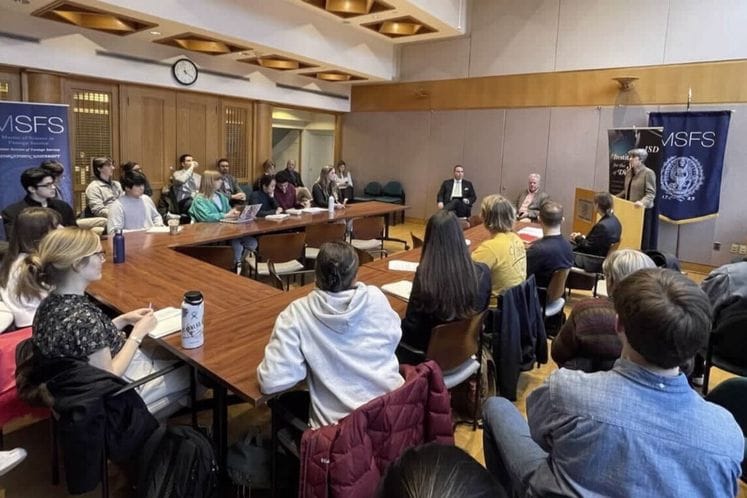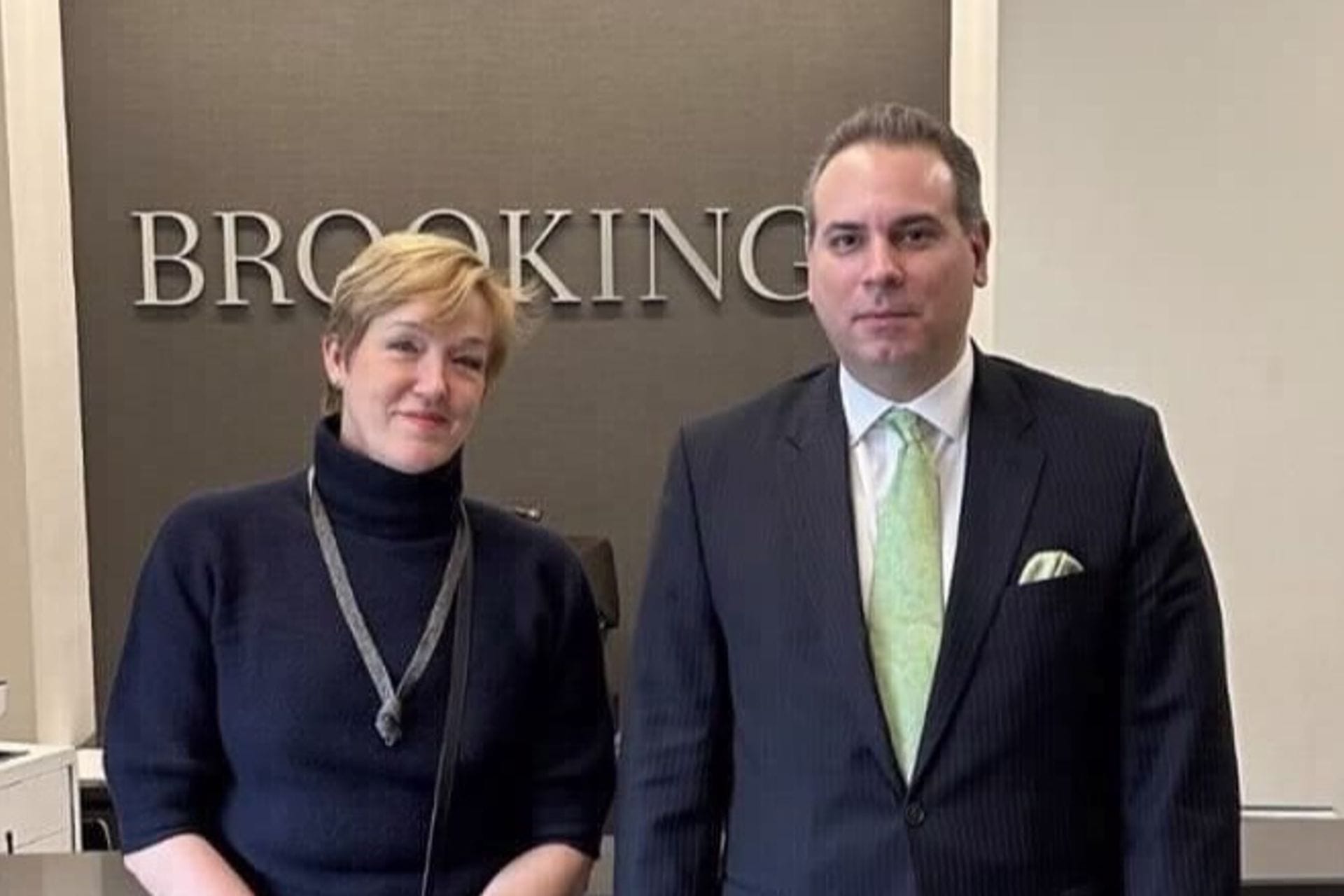- Government of Montenegro
EU membership guarantees prosperity for the Wester...
EU membership guarantees prosperity for the Western Balkans

Minister of Foreign Affairs Filip Ivanović, during his second day of official engagements in Washington, was a guest speaker at the Institute for the Study of Diplomacy at Georgetown University. Speaking about the history of the Western Balkans and the challenges that accompanied different periods of history, he emphasised that joining the EU is, in fact, the best way to enhance the development of societies and achieve unity and prosperity in the region.
He presented the goals of the Government's foreign policy, highlighting the commitment to regional cooperation and good neighbourly relations, credible NATO membership, and activities on the multilateral level. He particularly focused on the key priority - Montenegro's accession to the European Union. He outlined the progress of the 12-year negotiation process with the EU, explaining the new methodology and the focus on Chapters 23 and 24. He also stressed Montenegro's commitment to implementing reforms and meeting the criteria for membership.
The Minister emphasised that Montenegro is a leader in the EU accession process, recognised by both the Union and its member states. He expressed Montenegro's desire to capitalize on the current positive momentum and accelerate the negotiation process. Addressing numerous questions from students, the Minister discussed the significance and benefits of NATO membership, the relationship between the USA and Montenegro, the roles of the USA and the EU in maintaining security and strengthening stability in the region, the causes and consequences of the so-called brain drain in the past decade, and various other current challenges.

On his second day in Washington, the Minister also met with Constanze Stelzenmüller, Director of the Center on the United States and Europe at the Brookings Institution. The discussion focused on the foreign policy priorities of the 44th Government, with a specific emphasis on reforms within the European integration process. The Minister provided updates on progress in Chapters 23 and 24, highlighting the recent appointment of the Supreme State Prosecutor, the completion of the Judicial Council, the appointment of the seventh judge to the Constitutional Court, and the Chief Negotiator. During the meeting, he and the Brookings Institution colleagues discussed other topics such as the war in Ukraine and its impact on the EU enlargement process, the significance of specific negotiation chapters and conditions for their closure, expectations of support from the US Government, and the role of the diaspora in social and developmental processes in Montenegro.
